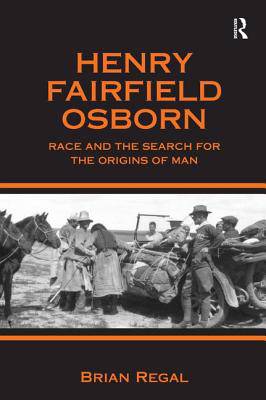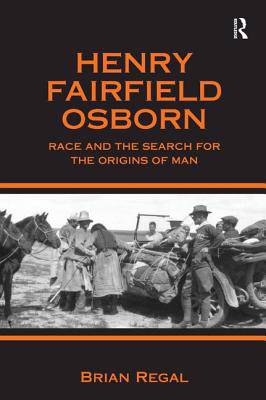
En raison d'une grêve chez bpost, votre commande pourrait être retardée. Vous avez besoin d’un livre rapidement ? Nos magasins vous accueillent à bras ouverts !
- Retrait gratuit dans votre magasin Club
- 7.000.000 titres dans notre catalogue
- Payer en toute sécurité
- Toujours un magasin près de chez vous
En raison de la grêve chez bpost, votre commande pourrait être retardée. Vous avez besoin d’un livre rapidement ? Nos magasins vous accueillent à bras ouverts !
- Retrait gratuit dans votre magasin Club
- 7.000.0000 titres dans notre catalogue
- Payer en toute sécurité
- Toujours un magasin près de chez vous
195,95 €
+ 391 points
Description
The discovery in the 1920s of a huge cache of fossils in the Gobi Desert fuelled a mania for dinosaurs that continues to the present. But the original goal of the expedition was to search for the origins of man. Henry Fairfield Osborn (1857-1935), director of the American Museum of Natural History, stood at the forefront of the debate over human evolution and the expedition aimed to prove his theory of human origins. Osborn rejected the idea of primate ancestry and constructed a non-Darwinian theory that the evolution of man was the long adventurous story of individuals and groups exerting personal will-power and inborn characteristics to achieve both biological and spiritual success. It is an idea that still echoes today. Study of Osborn's thinking, however, has been obscured by the perception that racism influenced his theories. Brian Regal paints a different and more textured picture in this book - he shows that Osborn's views on race, like his political ideas, were motivated by his science, itself grounded in religious doctrine. His belief in the Central Asian origins of man, his role as an activist for eugenic reform and immigration controls, his support for Nordicism, his place in the 'New' versus 'Old' biology debate, his role in the Christian Fundamentalist controversy, the Scopes Monkey trial, and finally his construction of the 'Dawn Man' hypothesis - all stemmed from his desire to support his human evolution theory, and point the way to salvation. This biography charts Osborn's intellectual development, from its roots in the eclectic Christianity of his mother, through his student days with Arnold Guyot, James McCosh, and T.H. Huxley, to his mature work at the American Museum. It examines his trials and tribulations, friendships and conflicts, and the world in which he lived: all contributed to the construction of his theory. It is the dramatic story of a man holding onto ideas that for him represented the very meaning of life itself.
Spécifications
Parties prenantes
- Auteur(s) :
- Editeur:
Contenu
- Nombre de pages :
- 240
- Langue:
- Anglais
Caractéristiques
- EAN:
- 9780754605874
- Date de parution :
- 19-03-02
- Format:
- Livre relié
- Format numérique:
- Genaaid
- Dimensions :
- 156 mm x 233 mm
- Poids :
- 497 g

Les avis
Nous publions uniquement les avis qui respectent les conditions requises. Consultez nos conditions pour les avis.






